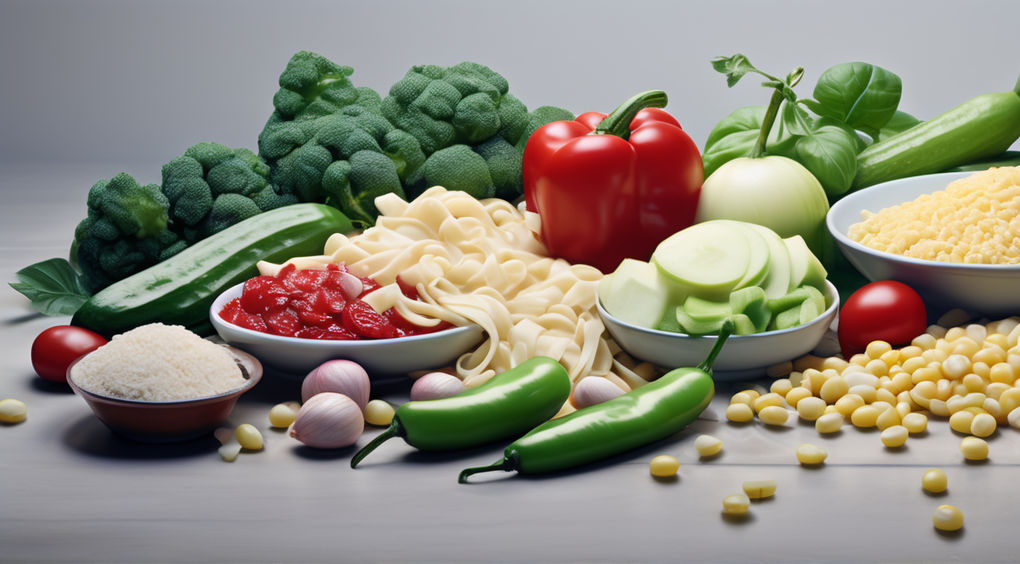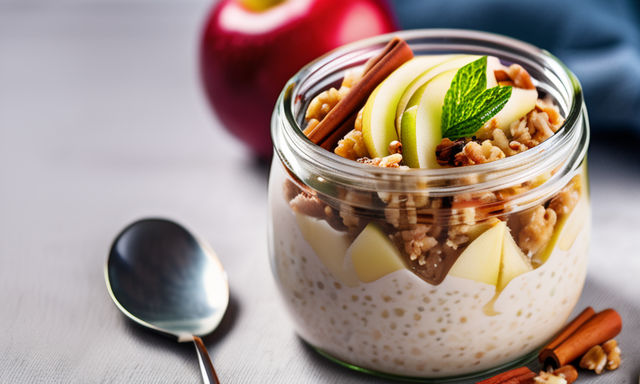Day on a Plate: High-Protein, Dairy-Free Video
Transitioning to a high-protein, dairy-free diet can seem daunting at first, especially for those accustomed to traditional dairy-based protein sources like milk, cheese, and yogurt. However, with a growing awareness of dietary restrictions, intolerances, and personal health choices, many are exploring the abundant possibilities within dairy-free nutrition. This guide aims to illuminate the path to maintaining a high-protein diet without relying on dairy products, showcasing the variety and richness of plant-based protein sources available.
Why Go Dairy-Free?
People choose dairy-free diets for various reasons, including lactose intolerance, ethical concerns related to animal welfare, environmental considerations, and health issues like acne or hormonal imbalances linked to dairy consumption. Regardless of the reason, it's entirely possible to enjoy a balanced, protein-rich diet without dairy.
Understanding Protein's Role
Protein is a crucial macronutrient, vital for building and repairing tissues, producing enzymes and hormones, and supporting overall bodily functions. While dairy products are known for their high protein content, there are numerous dairy-free options that offer ample protein to meet and even exceed daily requirements.Here are some top choices:
Top High-Protein, Dairy-Free Foods
-
- Legumes and Beans: Foods like lentils, chickpeas, black beans, and kidney beans are not only rich in protein but also fiber, making them excellent for digestion and satiety.
-
- Nuts and Seeds: Almonds, peanuts, chia seeds, hemp seeds, and flaxseeds offer a healthy dose of protein along with beneficial fats and fiber. They're perfect as snacks or added to meals for a nutritional boost.
-
- Tofu and Tempeh: Derived from soybeans, these versatile ingredients are staples in many vegetarian and vegan diets, known for their high protein content and ability to absorb flavors from various cuisines.
-
- Quinoa: Although often categorized as a grain, quinoa is a complete protein, containing all nine essential amino acids, making it a valuable addition to any dairy-free diet.
-
- Eggs: For those who include eggs in their diet, they're an excellent source of high-quality protein and contain a range of vitamins and minerals.
-
- Fish and Seafood: Options like salmon, tuna, shrimp, and tilapia provide high protein levels and are rich in omega-3 fatty acids, beneficial for heart health.

Integrating High-Protein, Dairy-Free Foods into Your Diet
Adopting a dairy-free diet doesn't mean sacrificing flavor or variety. Here are some practical tips for incorporating these protein-rich foods into your daily meals:
- Breakfast: Overnight Oats with Apple & Cinnamon: Kickstart your day with a hearty serving of overnight oats mixed with apples and a dash of cinnamon. This dish not only packs a protein punch with its chia seeds and almond milk but also offers a delightful blend of flavors, making it an ideal breakfast option for those on a dairy-free diet.
- Lunch: Thai Basil Chili Chicken Stir-Fry with Brown Rice: For a midday meal that's both satisfying and packed with protein, try a Thai basil chili chicken stir-fry served over brown rice. This dish combines the lean protein of chicken with the whole grains of brown rice, spiced up with the bold flavors of basil and chili for a nutritious lunch that doesn't skimp on taste.
- Snack 1: Avocado & Edamame Mash on Toast: When hunger strikes between meals, avocado and edamame mash on toast offers a perfect protein-rich snack. The combination of creamy avocado and protein-packed edamame spread over wholemeal toast provides a quick, nutritious pick-me-up that's both delicious and dairy-free.
- Snack 2: "Cheesy" Popcorn: For a savory snack that feels indulgent but is packed with protein, try "cheesy" popcorn sprinkled with nutritional yeast. This dairy-free alternative mimics the savory taste of cheese while offering the high protein content of nutritional yeast, making it an ideal snack for those following a high-protein, dairy-free diet.
Benefits of a Dairy-Free, High-Protein Diet
Adopting a high-protein, dairy-free diet can offer numerous health advantages, including:
- 1. Digestive Comfort: For those with lactose intolerance or sensitivity to dairy, dairy-free options can prevent discomfort and promote gut health.
- 2. Weight Management: Protein-rich foods increase satiety, which can help control appetite and support weight management efforts.
- 3. Muscle Health: Adequate protein intake is essential for muscle repair and growth, especially important for those engaged in regular physical activity.
- 4. Environmental Impact: Plant-based, dairy-free protein sources generally have a lower environmental footprint compared to animal-based proteins.

Tips for Thriving on a High-Protein, Dairy-Free Diet
- - Diversify Your Protein Sources: Incorporate a variety of protein-rich foods into your diet to ensure you're getting a broad spectrum of nutrients.
- - Plan Your Meals: Thoughtful meal planning can help you balance your macronutrient intake and ensure you're meeting your protein needs without dairy.
- - Read Labels Carefully: Many processed foods contain hidden dairy derivatives. Familiarize yourself with dairy-free labeling to make informed food choices.
- - Experiment with Dairy-Free Alternatives: Explore dairy-free milk, cheese, and yogurt alternatives made from nuts, soy, or oats to enjoy familiar flavors without the dairy.
Conclusion
A high-protein, dairy-free diet is not only achievable but can also be incredibly satisfying and beneficial for your health. By focusing on diverse plant-based protein sources and being mindful of your nutritional needs, you can enjoy the benefits of a high-protein diet while adhering to a dairy-free lifestyle. Remember, as with any dietary change, it's essential to listen to your body and consult with a healthcare professional or a registered dietitian to ensure your diet is balanced and meets your individual health needs.
Disclaimer: This article is for informational purposes only and is not intended as medical advice. Always consult with a healthcare professional before making significant changes to your diet, especially if you have specific health conditions or concerns.
Ready to level-up?
Create meal plans 10x faster, follow up with your clients through our mobile app, and never struggle with meal planning or recipe management again.